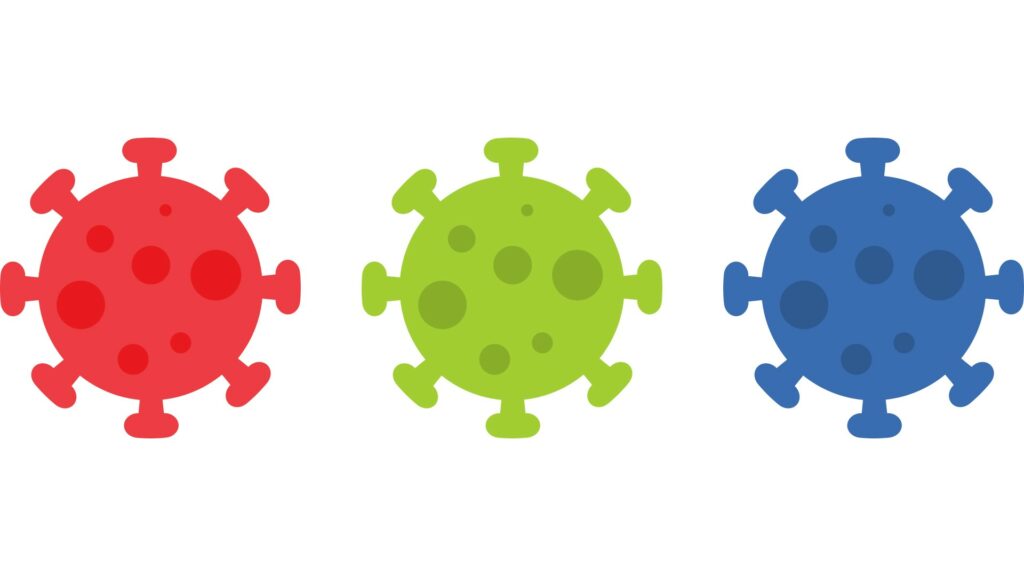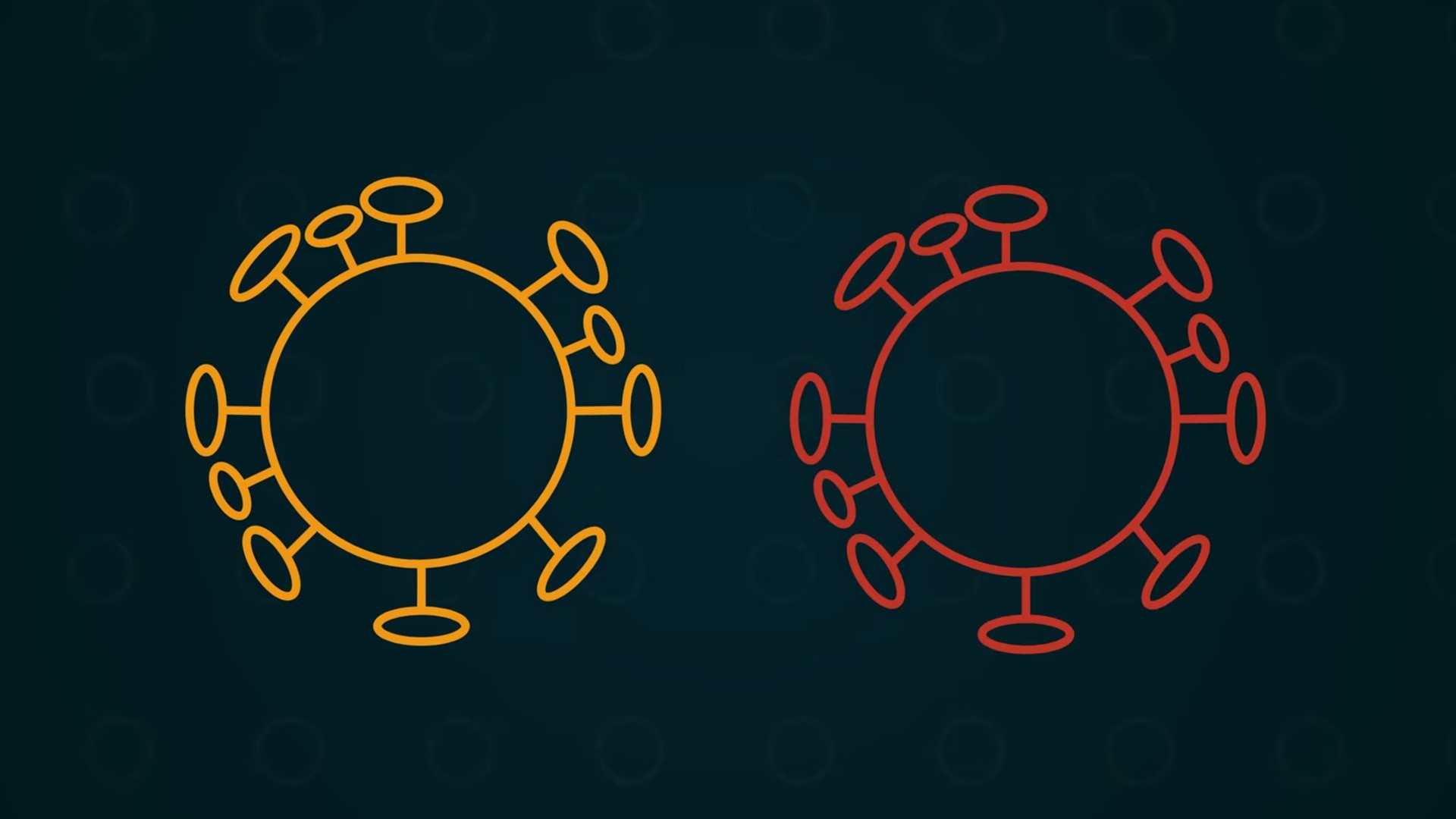PCR tests will now look for coronavirus mutations, not variants. This change will take effect in the coming weeks, as it would be more medically relevant.
The health crisis has taught us a whole vocabulary previously reserved for certain areas of research. It is now common to speak of incidence rate, reproduction rate … But also virus variants, and now mutations. But what is the difference between these two terms, at first glance quite similar? A big difference, if we are to believe the virologists who asked from April 26, in a study published in the Journal of Clinical Microbiology that PCR tests now focus on screening for mutations rather than variantss.
One variant for several mutations
The variants, to begin with. English, Brazilian, South African, Indian or even Breton, they have become famous and very commonly used, to such an extent that the WHO has asked to rename them so as not to stigmatize the places to which they are attached. Each time, this is a new strain of the virus. A variant is an “improved” version, in a way (at least, from the perspective of the virus itself), since it spreads faster. If the goal of the virus is to reproduce and spread among a greater number of living beings, it must find new ways to resist the various treatments or vaccines that can stop its course.

This evolution takes place through mutations. It is a set of mutations that allows the appearance of a new strain (a new variant) of the virus. To go into more detail, there is a mutation when there is a change in the RNA of the virus, its genetic material. A mutation is an accident, it occurs on rare occasions in all living things, including humans. In contrast, a virus multiplies enormously. According to a study relayed by Le Monde, an infected human has between 1 and 100 billion virus particles. Over so many iterations, it is much easier to get many mutations.
When does a mutated virus become a variant?
The variant being the result of several mutations, it exists from the moment the virus has identified a “good” mutation. That is to say, the one that will allow it to spread more. From there, replications of the virus that have this modified gene will survive better than their counterparts and will therefore be more widespread thereafter. This mutation becomes a viral strain, and multiplies in the manner of the so-called British variant in France which has become very largely dominant.
Why should tests target mutations as a priority?
Mutations are more interesting to researchers because they indicate more specifics. Thus, certain key mutations are found in different variants and carry certain characteristics of the virus which are particularly interesting. Among them, the E484K mutation identified in the South African and Brazilian variants. It makes the virus resistant to the vaccine. Knowing that this mutation is spreading in several strains of the virus is much more important than knowing that this or that variant becomes dominant in a territory. In addition, by definition, a variant only exists when it has become widespread enough to be identified. Otherwise, it is only one mutation among others which is not necessarily intended to prosper. A mutation identified early as having resistance to the vaccine or the ability to cause severe forms of the disease may be contained more effectively.
Some laboratories have started using the new kits to detect the most important mutations. And all should be equipped within a week or so.


